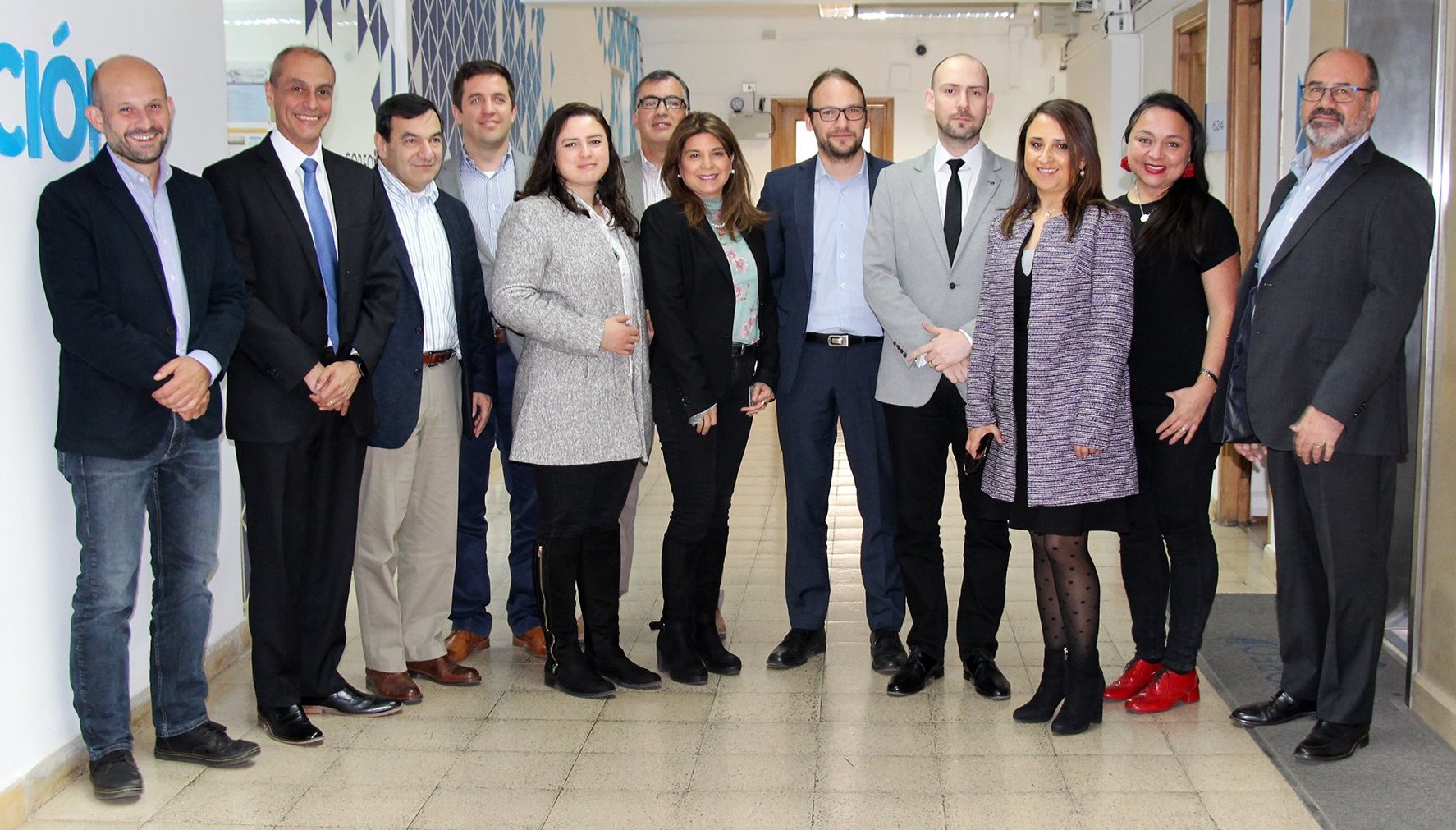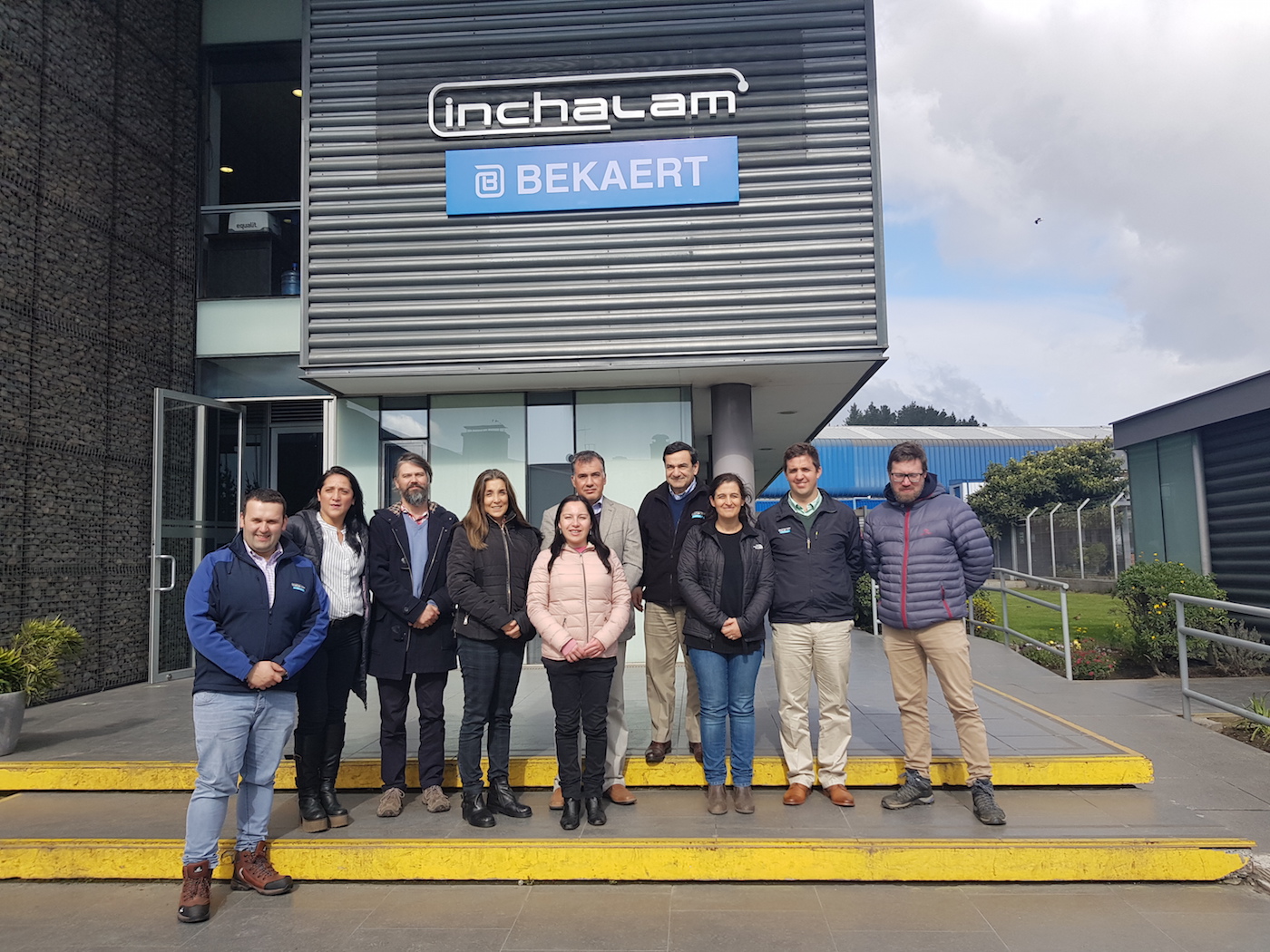UC Davis Chile and Inchalam propose to contribute to the fruit farming sector through extension
Just over two years ago, the company Industrias Chilenas de Alambre Inchalam S.A. approached the innovation center of University of California, Davis in Chile (UC Davis Chile) in order for them to initiate a technical collaboration and to develop innovation projects focused on the fruit sector, specifically on fruit conduction systems and protection. Throughout this time, both entities have carried out various initiatives with excellent results. For this reason, they thought it was natural to formalize this relationship by signing a Collaboration Agreement on Wednesday, 4th September at Corfo's offices, as UC Davis Chile is supported by Corfo’s International Centers of Excellence Attraction Program.
The aim of the agreement is to deepen the relationship of collaboration between Inchalam and UC Davis Chile as strategic allies in the development of innovation projects and activities related to the provision of information and new capabilities to national fruit producers. “One of our main stakeholders has always been industry. Although as UC Davis Chile we always wish to publish, create patents and generate academic movement, our aim is to improve productivity and the competitivity of Chilean companies. That is why, from the outset we have always been working with different companies and the signature of this alliance with Inchalam confirms the joint work, in this case in the service of fruit farming,” commented Dr. Mauricio Cañoles, CEO of UC Davis Chile.
“We realized that we alone could not innovate, but that we needed third parties to help us. Therefore, we have been working with local and foreign universities on issues of mining, aquaculture and natural risks. In the fruit farming sector, we detected that there were many needs for innovation and that we required a high-level partner. What motivated us during this process was not so much the commercial issue, but to generate value for a sector we saw was developing. Therefore, in this union with UC Davis Chile we are looking to identify the necessities of the different actors to improve productivity, efficiency and profitability. Since we still face many challenges, we believe that this is going to be more of a long-term relationship,” explained Juan Carlos Aliste, Inchalam’s Commercial Manager.
He added: “Some years ago, we contacted a number of people who were generating knowledge and developments and we were making very slow progress with them until we connected with UC Davis Chile when it accelerated in an impressive manner. Compared to the previous working rate, with UC Davis Chile we have gained about five years in expertise and its application.”
“This agreement is very prodigious. It carries out a check through the list of results expected by the International Centers of Excellence (CEI). Inchalam has a certain productive capacity and UC Davis Chile a certain expertise and there is an industry, in this case, the agricultural industry which has a need. It seems therefore, simple and natural to join these three rungs, but the truth is that in Chile this rarely occurs. On many occasions the fruit grower is more often than not subject to product sales offers, rather than actually satisfying a real requirement, but here the connection of expertise is the bridge. UC Davis Chile has been this key piece by pinpointing the pain of a productive sector, as important as the agricultural sector in Chile, and effectively resolving it. In this sense, I believe that a huge success is being built here and which should not go unnoticed,” affirmed Fernando Hentzschel, Corfo’s Technological Capabilities Manager.
Joint work
Over these two years, the collaborative relationship has generated concrete results, such as the creation of the AgroInchalam Agricultural Extension Program, focused on fruit farming, initially on table grapes, vitis vinifera, apples and cherries. During the first stage, UC Davis Chile contributed by identifying the gaps and the key actors, as well as organizing a technological tour to the United States, UC Davis as well as Oregon’s and Washington’s state universities.
Next, during the execution of this Extension Program the joint work continued generating technical sheets on the fruits of interest; on conduction systems for fruit trees and on maintenance, types and use of wire. This, in collaboration with the key actors in each issue as well as supporting and leading the execution of different seminars and workshops linked with fruit extension and agricultural structures. This relationship has also included the visit of international experts, technical visits and field trips.

What is UC Davis Chile?
The University of California, Davis in Chile (UC Davis Chile) is an innovation center in life sciences, dependent on UC Davis – house of studies, world leader in agronomy – focusing on the technological challenges of Chile’s agri-food, forestry and environmental sectors. UC Davis arrived in Chile in 2015 thanks to Corfo’s support of through its International Centers of Excellence Attraction Program.
One of UC Davis Chile’s areas of work is extension, given that it is a fundamental element to generate processes of change and to potentiate innovation in different productive sectors such as agri-food. Among the outstanding agricultural extension systems on a global level is the University of California Cooperative Extension System which has been operating for over 100 years, a solid structure and an impact backed by figures. UC Davis Chile´s proposal is based on the adoption of this system to our local conditions, that is, to the country’s social, cultural, economic and productive reality.
What is INCHALAM?
Industrias Chilenas de Alambre Inchalam S.A. is the leading company in the manufacture of wires and wire products in Chile and the main supplier of wires and metallic structures for agricultural work in the country. Among its objectives is to satisfy steel market requirements with quality products and services in a reliable and profitable manner, promoting company expansion and continuous improvement of quality control through integration and diversification of wire alternatives, developing long-term relationships and by working jointly with the leaders of each field.
